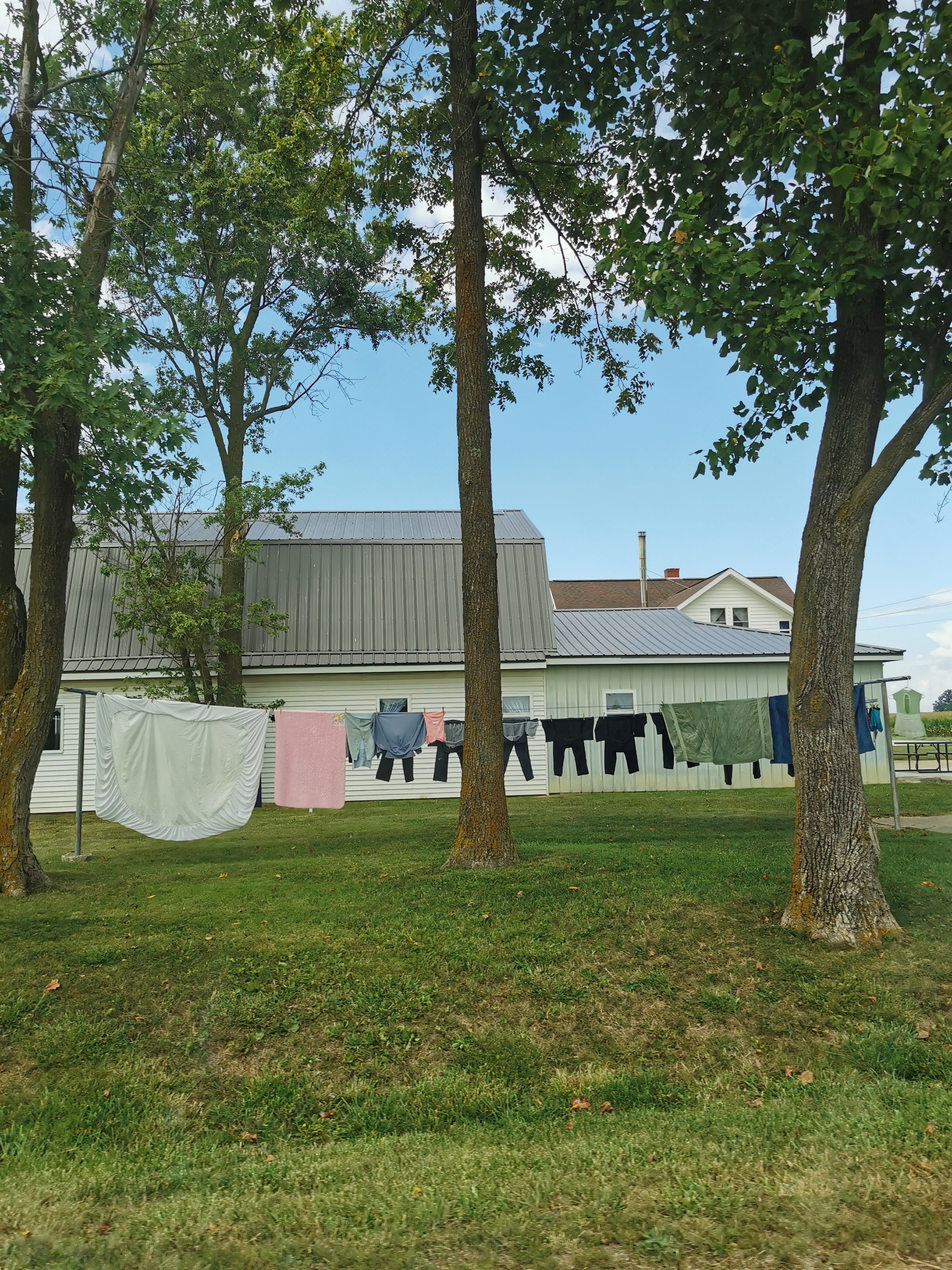Information
About Amish Shwitzer
Amish Shwitzer – a variety with roots in Bernese German – is mainly spoken in Adams County, Indiana, but also documented in several neighbouring counties. The ancestors of todays speakers were persecuted and forced to leave Switzerland. After finding temporary refuge in the areas of modern-day Alsace and in the Palatinate region (Pfalz), many migrated to North America in the 18th and 19th century. During their journey, the originally Bernese German speaking Amish not only came into contact with low Alemannic or Palatinate varieties, but also with English and Pennsylvania German. The latter being a language contact variety itself, which emerged in Pennsylvania due to language contact between English and German dialects from the Palatinate. Therefore, Amish Shwitzer is a minority variety not only in contrast to the majority of American English speakers but also in the greater Amish community.
As Pennsylvania German is the variety spoken by most Amish communities in the US today, contact situations with speakers of Amish Shwitzer arise. The goal of the preceding project "Amish Shwitzer as a mixed language with closely related parents" (2020-2022) was to investigate the contact phenomena between these two varieties and other languages (i.e. American English, Alsatian). This contact situation of Amish Shwitzer has led to innovations not found in any other Swiss German dialect. The linking of archaisms and innovations that both originate in closely related Germanic varieties, makes Amish Shwitzer to a perfect test laboratory for studies on dialect contact.
About the project
Based on the collected data and findings of the previous project, the focus of "Variation in Amish Shwitzer" (VarAmiShwi) lies on the variation found within the speech island. Two main research areas will be covered. The first focus lies on the acquisition process of the minority language Amish Shwitzer as a first language in children; the second on the linguistic variation resulting from geographical distance as well as different contact settings. The latter is of importance, as the data from the previous project was collected mainly from the Adams County community, where most speakers speak Amish Shwitzer and there is only little Pennsylvania German influence. Only by including communities with different speaker proportions and therefore different sociolinguistic settings, the interpersonal variation as well as regional changes in the variety Amish Shwitzer can be described. Furthermore, intrapersonal variation is investigated more thoroughly. In this research project, data on child language acquisition as well as dialect diversification in a minority language will be collected and analysed.
And what does it sound like?
Transcription
M: Nei, er hät pfragt, ob mier Tiere hei, Geil.
E: Ah, okay.
G: Ja, ja, Chie, oder...
E: Nime jez. Mi hei koa. Mi hei koa.
G: Händer? Ja.
M: Ja, ja, mier hei koa.
E: Säle Hinkelschtal wa vol Hinkel.
G: Mhm.
E: Und när dehinde isch de isch de Seischtal zi, säl woar ebe... zeischt Sei koa.
M: Weisch was mi meine wen mi säge Seischtal?
G: Ääh, äh, the hog house.
E: Hog house.
G: Yeah, that's, ääh Söischtal in my dialect.
M: So, Söi? Söi?
G: Söischtal, ja.
M: Söischtal. Und i ha, i ha, ge-, puret mit Geil.
G: Ja.
M: Wi, wie dädet ier säge? Rose?
G: Äh, Ross
M: Ross?
G: Mie säget Ross.
M: Abe no hani si, i ha si eino verchouft und ha mi ne Tractor gi.
Translation
M: No, he has asked whether we have any animals, horses.
E: Ah, okay.
G: Yes, yes, cattle, or...
E: Not anymore. We had [them]. We had [them].
G: You had? Yes.
M: Yes, yes, we had.
E: This chicken coop was full of chicken.
G: Mhm.
E: And then over there, that was, that was the hog house, that was actually... first [we had] pigs.
M: Do you what we mean when we say seischtal?
G: Eeh, eh, the hog house.
E: Hog house.
G: Yeah, that's, ääh söischtal in my dialect.
M: So, söi? Söi?
G: Söischtal, yes.
M: Söischtal. And I have, I have, ge-, I farmed with horses.
G: Yes.
M: What would you say? Rose?
G: Eh, Ross.
M: Ross?
G: We say Ross.
M: But then I have, I sold one after the other and got me a tractor.
